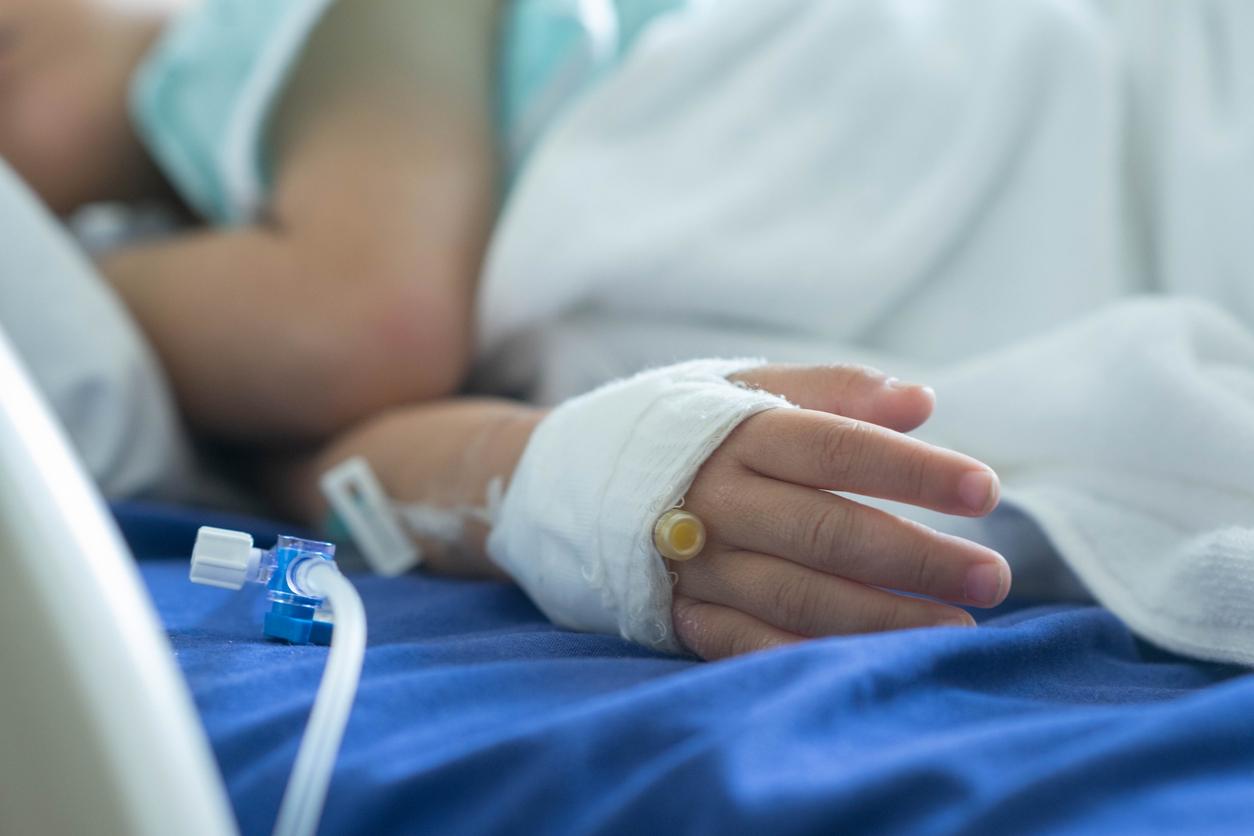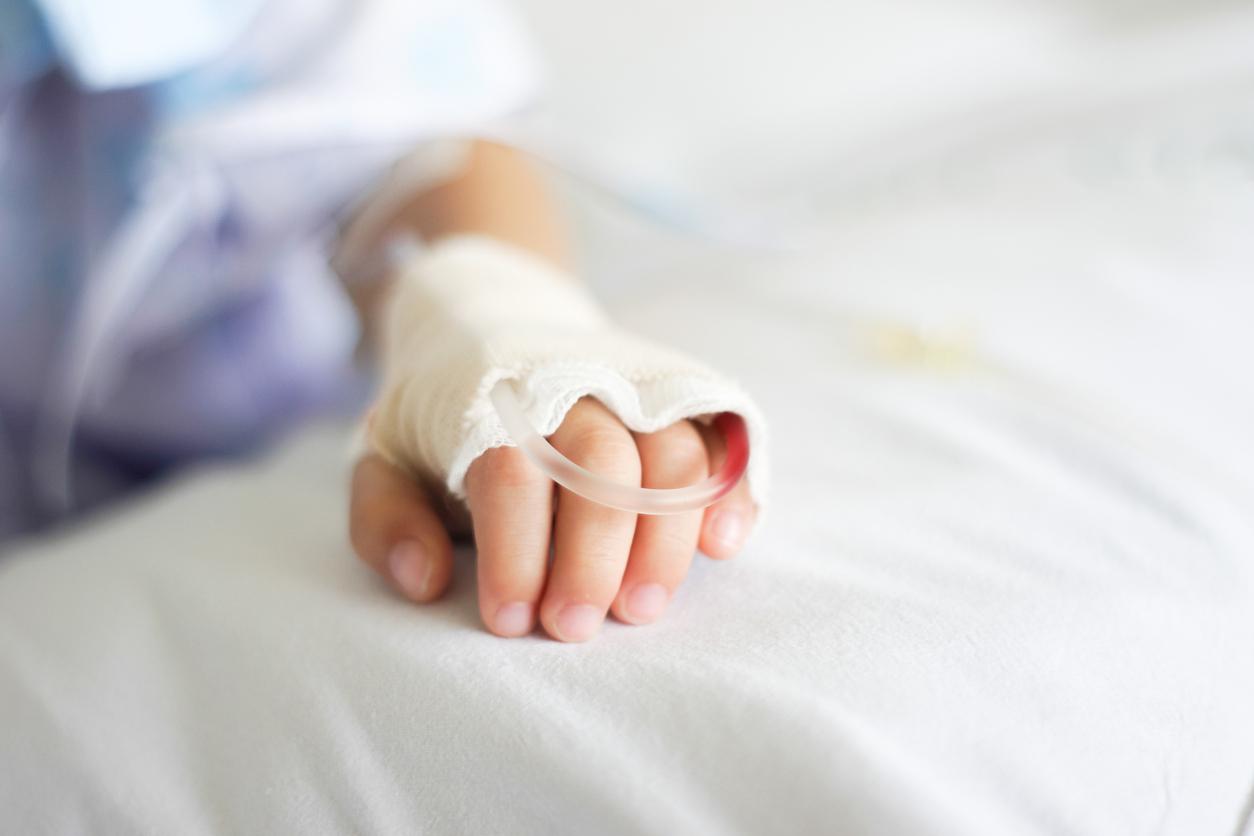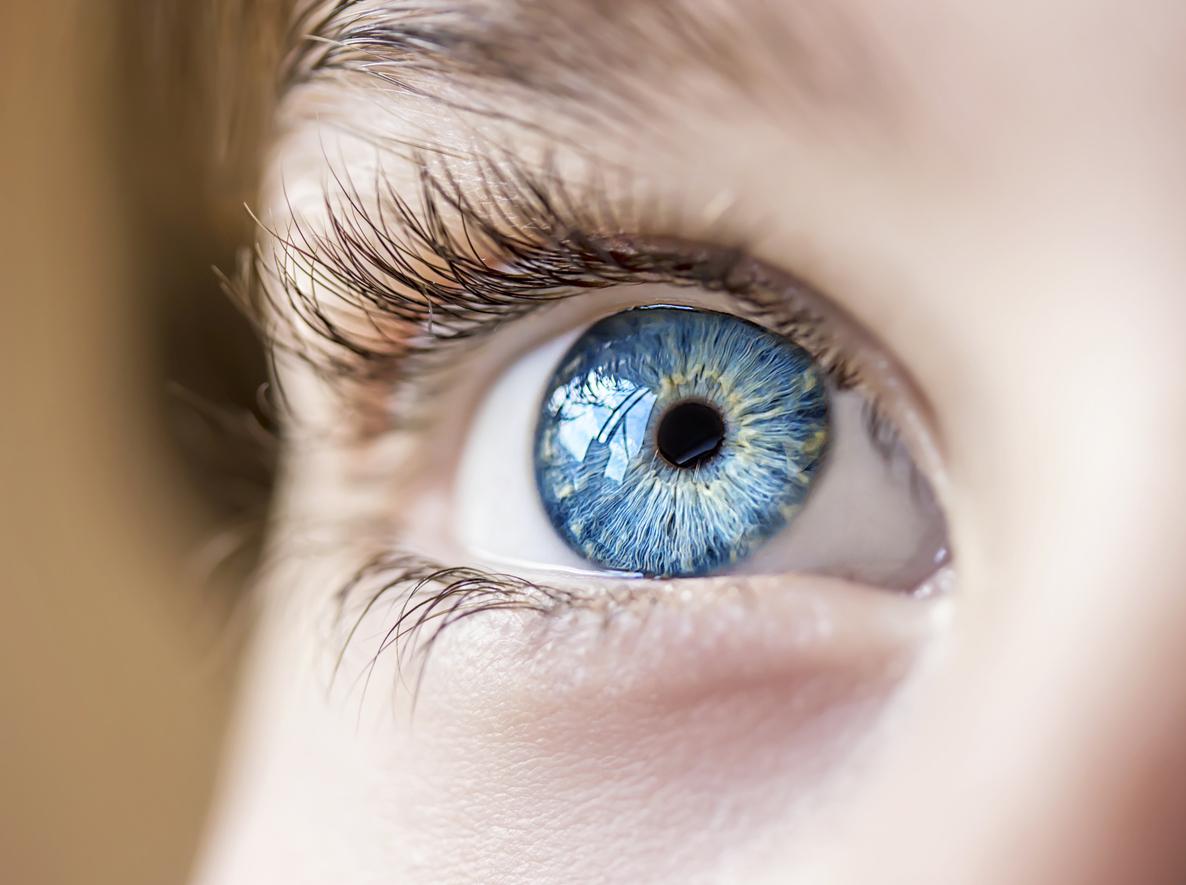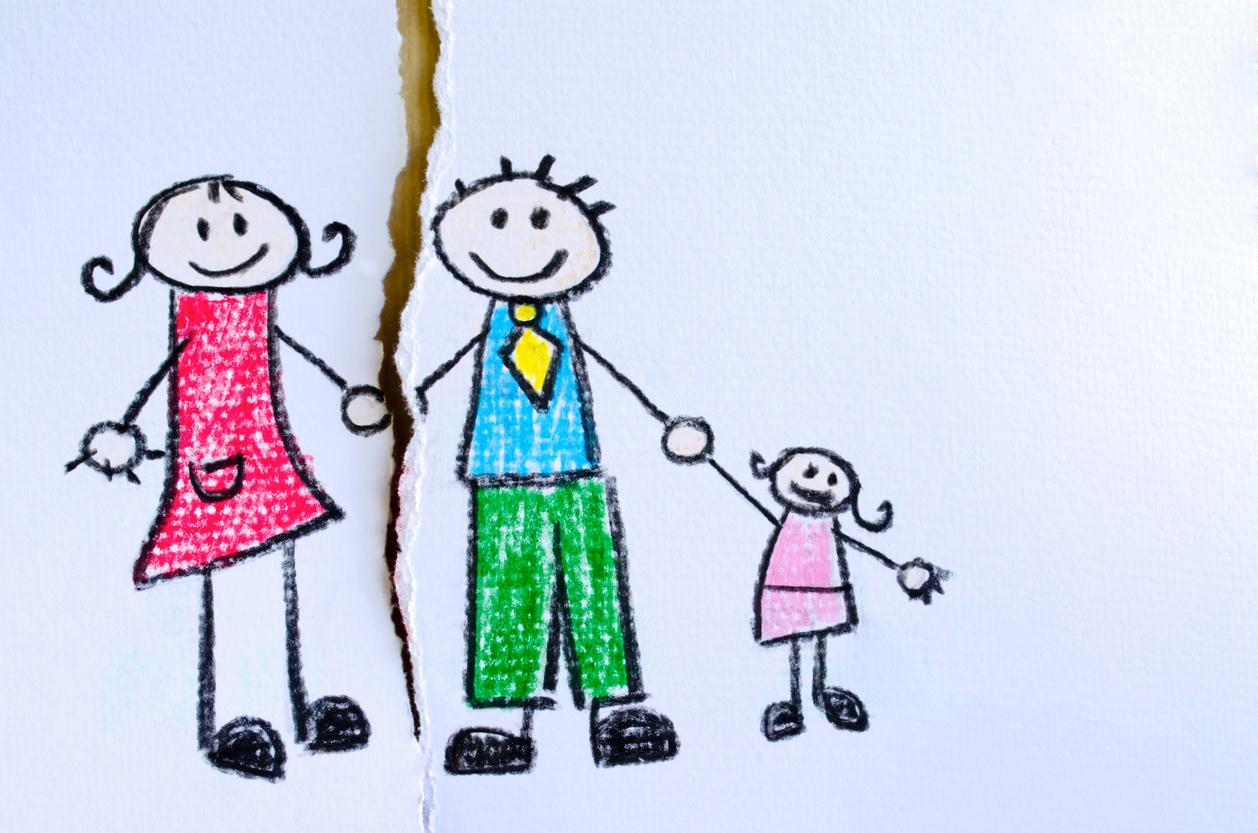Knowing that one child in 1000 is born hearing impaired, early detection is necessary so that treatment begins as soon as possible, thus allowing them to lead a normal life. Dr Paul, ENT and Ms Ruiz, speech therapist tell us a little more about this.
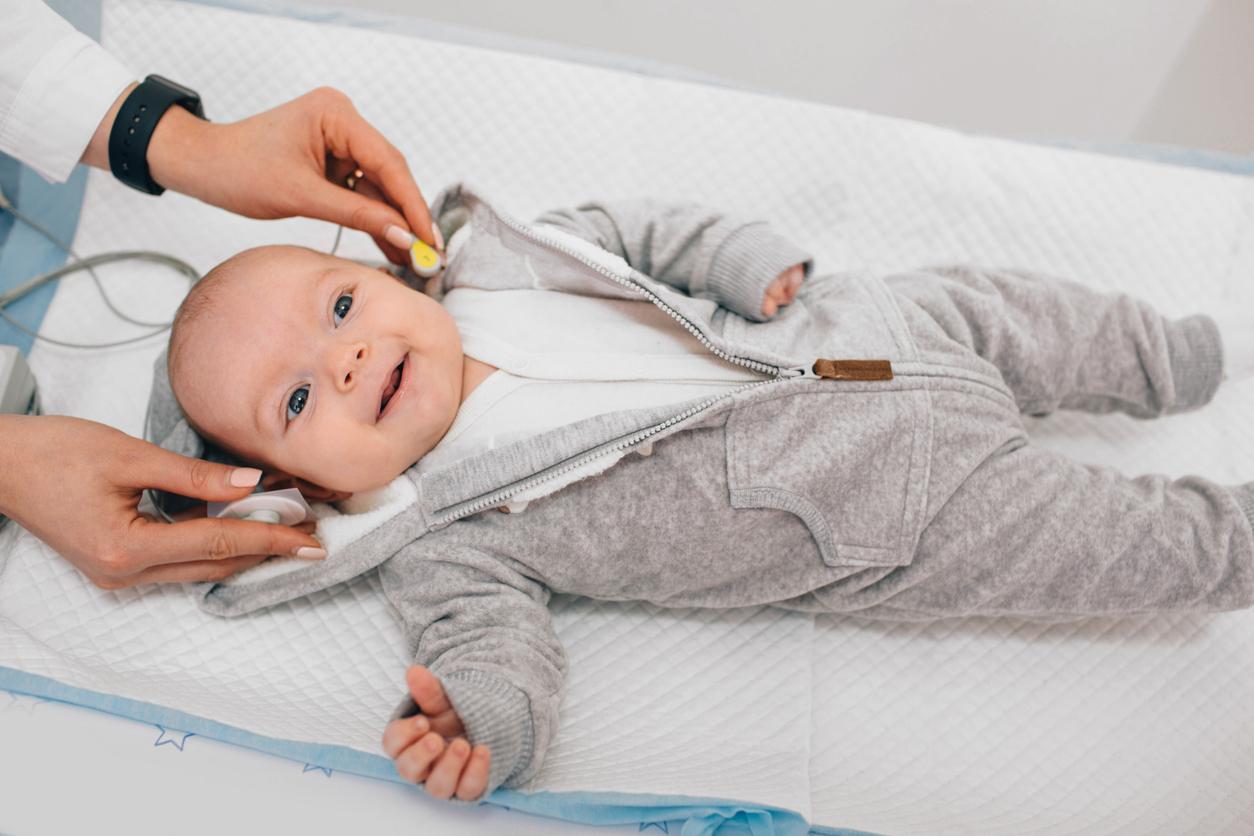
- Early detection of a child’s deafness is necessary for language learning to take place correctly.
- The speech therapist, ENT specialist, hearing aid specialists, psychologists, child psychiatrists and psychomotor therapists have an essential role in the care of deaf children. Just like the general practitioner, the main contact for the family and the child.
- The speech therapist has a role of supporting the parents and the child but also of rehabilitation in order to develop the communication skills of the child suffering from deafness.
Guests, in September 2023, of one of our programs dedicated to the early detection of deafness in children, Dr Antoine PAUL, ENT and Ms Sophie RUIZ, speech therapist on his team, answered our questions. Here are the details.
Deafness: screening tests from birth
A relatively common disease, deafness can exist at birth but also appear later. Besides, Dr. Paul indicates that : “Between 6 and 10 years old, there are 3 to 5 children out of 1000 affected by deafness.”
Fortunately, compulsory screening, implemented in 2012, is offered to all parents in maternity wards and in the neonatology department. This practice allowed early detection of deafness, an important element according to Dr. Paul since it “allows children to acquire language well”.
This test is carried out by trained healthcare staff, in a quiet place with a well-rested baby. There are 2 types: provoked acoustic self-emissions and auditory evoked potentials. They are completely painless and automated. The headset or earphones are placed on the ear, and in some cases electrodes are placed on the forehead. These systems make it possible to detect the hearing function of both ears. Dr. Paul explains: “It’s a screening test. That is to say, if it passes we are sure that the child hears, but if it does not pass, that does not mean that he is deaf but that on the day of the test he may have a difficulty . So you have to recheck 48 hours later, before leaving the maternity ward or the neonatology department.”. And if at 2th test, “it does not pass on one side or both sides, the child must be referred to a specialized service.”
Deafness: monitor language
If deafness has not been detected, language development should be monitored. As Dr Paul explains: “A child who speaks is a child who hears.. Parents, as much as health professionals, must monitor this language development (vocabulary, sentence construction, etc.) according to the stages of the child’s psychomotor development. A delay should automatically lead to a hearing test. Ms. Ruiz, speech therapist, confirms that “any language disorder in children raises the question of the integrity of hearing”.
If deafness is detected, its level of severity must be measured and its origin known. Deafness in young children can be genetic, or of maternal-fetal cause (transmission via the placenta), or be due to extreme prematurity. Sometimes the cause is toxic, following the taking of ototoxic medications (toxic to the hearing system) but necessary to treat certain serious infections. There are also transient deafness (otitis) and other permanent deafness which must therefore be differentiated to adapt the treatment.
Deafness: fitting from 3-4 months
The treatment consists of fitting the child as early as possible (from 3-4 months). The device is then fitted around the ears which completely molds the external ear canals, so that children do not lose them because they often move a lot. These devices are large, bulky but “this does not necessarily mean that the child is very deaf” insists Dr. Paul.
Several people are important in the care of deaf children such as the ENT (otolaryngologist), hearing aid specialists, speech therapists, and sometimes even psychologists if necessary because, in fact, the experience is not easy for them. children and parents. In certain cases, psychomotor therapists intervene, as well as child psychiatrists. The general practitioner obviously has an important role since he is the main contact for the family and the child.
Deafness: the important role of the speech therapist
It is necessary to carry out an assessment with a speech therapist to know what the child has achieved.
Even with very young children, Ms. Ruiz explains to us that the speech therapist accompanies the parents and tries to improve the child’s communication, stimulate his language and show him how to pay attention to the noises around him, to facial signs. the other. And this regardless of the age of the child.
Deafness: a vital role for parents
The role of parents is major, as Dr Paul emphasizes. For him, they must support the child’s development and also ensure that the device is worn well. Parents should encourage their child from a young age. It is necessary for parents to maintain a connection with him so that he does not feel isolated. They must communicate with him by speaking correctly, clearly, articulately and in front of the child so that he can detect facial signs.
Ms. Ruiz specifies that: “the“Speech therapy care adapts according to the needs and adaptation of the family”. Moreover, very early on, she provides parental support by showing them how to best stimulate the child. The speech therapist can also provide rehabilitation as soon as “the child sits upright and can pay attention for more than a few seconds.”. This helps to properly develop the child’s communication skills. Parents will have to monitor the start of learning to detect the slightest problem in order to improve its social and academic prognosis.
Let’s not forget that in many cases, cochlear devices or implants exist and can improve things. Whatever the case, let us remember that early detection gives hope for a simpler future for the child and those around him.




